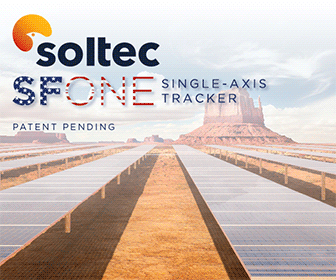Maine Community Group Aims to Bring More Solar Energy Systems, Education to Bangor Area
The process of installing solar power systems can seem like a daunting task for a homeowner to take on. Between costs and technical questions, there is a lot to consider.
But a new community group in Bangor is aiming to reduce the cost of solar installations and make it easier for area residents to take steps toward renewable energy systems.
The group, Greater Bangor Solarize, is a community effort led by an advisory panel of volunteers and a partnership between the city of Bangor and the Eastern Maine Development Council. It operates as group purchasing program and educational opportunity, where residents and small-business owners within 10 miles of Bangor can learn more about solar energy and work with a solar installation company that has been selected by the advisory committee.
"It's a way to reduce costs by buying as part of a group," coordinator Karen Marysdaughter said. "But we've also got that educational component so people can ask questions and learn [about solar] to the extent they want to."
Greater Bangor Solarize launched this summer, and it is modeled after other Solarize groups around the country. The Solarize model started in Portland, Oregon, to increase the education around - and the prevalence of - solar energy systems. Solarize made its way to Maine several years ago, with the first group starting in Freeport. Since then groups have been started in Waterville, on the midcoast and Mount Desert Island.
Greater Bangor Solarize launched its three-month campaign July 1, and it has since been holding several open-site solar installations where the public is invited to learn more about solar energy systems and the process of installing solar. The program ends Sept. 30 - a deadline which was set as an effort to get people to act on their interest in purchasing solar energy systems.
For Bangor resident Heidi Hooper, the program's community roots motivated her to finally act on her desire to install solar panels on her home.
"I liked the concept of renewable energy, it's clean and it's just something I've been thinking about," Hooper said. "[Greater Bangor Solarize's] support system interested me a lot, knowing they will be right by my side with [the installation process]."
Greater Bangor Solarize's six-person advisory committee was formed this spring and includes Marysdaughter; Daniel Dixon, sustainability director at the University of Maine in Orono; Sharon Klein, an assistant professor of economics at UMaine; Rick Reardon, chair of the Electrical and Automation Department at Eastern Maine Community College in Bangor; Tom Stone, professor and sustainability committee chair at Husson University in Bangor; and Jeff Whalen, community affairs manager at the Eastern Maine Development Corporation.
The members of the committee have volunteered their time to the Greater Bangor Solarize effort and worked throughout the spring to conduct a request for proposals process in which they selected Insource Renewables as the solar installer for the Bangor-area Solarize campaign.
By having an advisory committee research and select a solar installer, Greater Bangor Solarize can provide homeowners with the satisfaction that they're working with a company that has been selected by a third party of informed individuals.
Having installed solar panels on her home without a program like Solarize, Marysdaughter said she was overwhelmed with selecting an installer and researching their credentials.
With Solarize, "[homeowners are] putting their trust in our local committee to pick a solar installer for them. It eliminates that step," Marysdaughter said.
Since Greater Bangor Solarize is bringing customer leads to the solar installer, and making sure the customers are located in a concentrated area, Insource Renewables is able to remove some of the "soft costs" that come with the installation. Once 30 people sign contracts with Insource Renewables through Greater Bangor Solarize, the maximum group pricing discount will be reached. As of Aug. 22, 21 homeowners have signed contracts through the program.
"What we've done for the solar installer is to reduce their marketing costs, basically, and reduce their travel time by concentrating people in a specific geographic area and they're passing those savings onto the customers," Marysdaughter said.
With changes in the state's net-metering policy taking effect Jan. 1, 2018, Greater Bangor Solarize is also hoping to have homeowners install their solar energy systems before the credits are rolled back. Net-metering is a means in which electricity customers with solar panels get credits for the times they produce more power than they consume - which reduces their electric bills.
Homeowners and small-business owners who install solar power systems prior to the end of 2017 will be grandfathered into current net-metering rules, which provide a full credit for 15 years before they see the credits start to decrease.
With fewer homeowners having solar energy systems in the Bangor area as compared to other areas of the state, Vaughan Woodruff, owner of Insource Renewables, said Greater Bangor Solarize is a good way to spread information on solar energy in an area where it is less prevalent.
"It's fresh, it's new here, where in other parts of the state solar has been around," Woodruff said. "There aren't a lot of systems in the area so far, so a lot of the knowledge is abstract. [Greater Bangor Solarize] has been really exciting because if we did an open installation in Freeport, I would bet that the attendance would be far less in terms of the folks coming out."
While the program ends Sept. 30, Marysdaughter said that she hopes the conversation around solar energy that Greater Bangor Solarize spurs will have a lasting impact on the area.
"We're trying to jumpstart the critical mass thing with Solarize," she said. "Getting people out there to see it, and having enough people with a neighbor somewhere around them who has it."
Bangor Daily News | www.bangordailynews.com









.jpg?r=1733)
.jpg?r=9763)

.gif?r=2624)